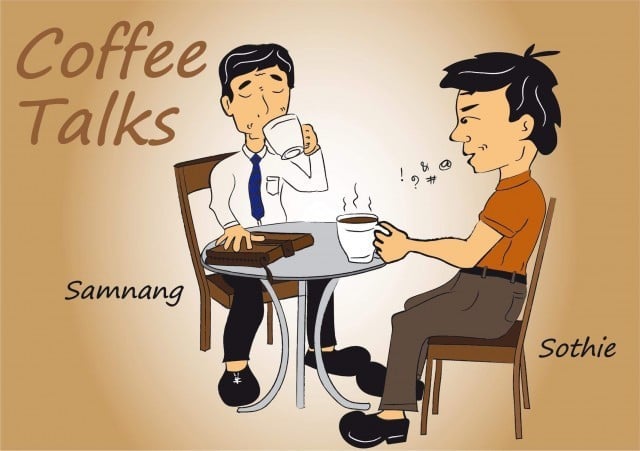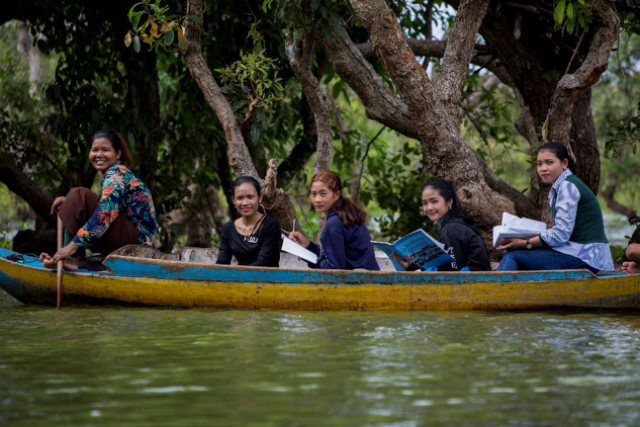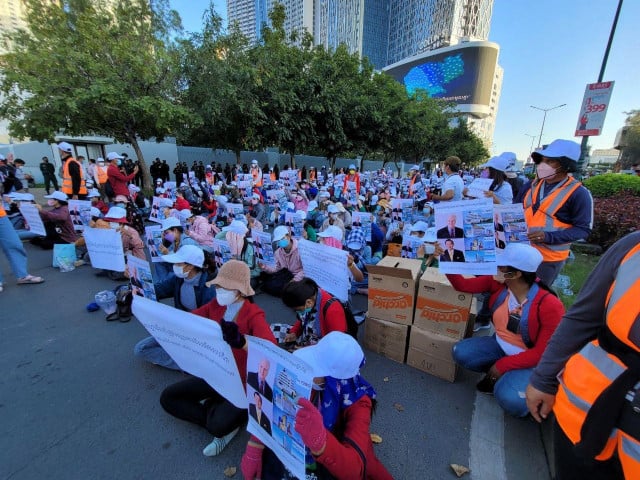Will Facebook Retain its Influence over Cambodian Life?

- Cambodianess
- July 21, 2020 7:11 AM
After going on a short vacation with each of their own family around some of the provinces of Cambodia, the two friends, Samnang and Sothie, begin meeting each other once again at the Café. Politics, society and economics are once again the topics that capture the men’s imagination. They were exchanging ideas in terms of why—in the next five years—Facebook may be less influential in the political sector as well as the day-to-day life of the Cambodian people.
Sothie: Eh, Samnang! Is it true? I find it hard to believe since, as you may know, many Khmer people are so addicted to using Facebook sometimes to the point that they even forget to have meals. Some also tend to not realize that they are supposed to do their job during work hours.
Samnang: Of course, I agree with you. However, the future might be different.
Sothie: Oh gosh, just tell me your reason. If you are going to say it, just say it quick.
Samnang: Well, what I am going say is not backed up by any statistical data or any scientific research. I just say it based solely on my daily observations of the trends that take place in Cambodia, as well as around the world. Almost two decades ago, developed countries like France, the United Kingdom and other European nations were experiencing an enormous spike in the usage of social media, especially among teenagers and young adults. During that time, the European people were, more or less, as addicted to social media as what the Khmer people are experiencing now. However, something changed within those countries. The habit of posting personal activities online became less common.
Sothie: Why? Do not they feel stressed without Facebook?
Samnang: Being stressed or not is none of my business. Their reduction in Facebook usage has its own reason behind it. Firstly, sharing their personal activities such as partying, hanging out with their romantic interests or even telling too many jokes simply does not really benefit them. Secondly, companies usually monitor and check the job seekers’ public online activities. This prevents people from expressing themselves too personally online, in case an employer decides not to hire them on the basis of what’s been posted. Thirdly, many employees lose their job due to the excessive use of Facebook during work hours. The last reason would be the ever growing amount of other similar social media platforms such as Telegram, Instagram, WhatsApp as well as Line in which personal activities are to be more privatized. This is what currently happening within some of the countries in the world. Do you understand, Sothie?
Sothie: Okay, how about in the context of Cambodia. Where do you think it is heading?
Samnang: I might be wrong, sometimes. However, we can already observe the trend that is slowly happening in Cambodia which is similar to that of European countries in the past. Some companies are tracking and monitoring their employees’ public posts on their social media accounts. The companies want to know how each of their employees use the online medium.
Sothie: Samnang, wait… is not that their personal life?
Samnang: You are not wrong. It sure is the personal life which belongs of each employee. However, the way employees demonstrate themselves on social media may reflect, to some degree, the image of the company or institution they work for. You do understand? Of course, it can be a bit hard to differentiate completely. Let me give you an example. Let’s say you are a teacher who works for a private school and that is also where you receive your salary. Unfortunately, you enjoy posting images of you partying. Later on, the school may warn you not to do so. Should you be angry at them? Does that only involve solely your personal life? Does it relate to the school’s publicity? If I were to ask you this way, how would you answer me?
Sothie: I do not have any exact answer toward your particular question. However, if I do not work for anyone, am I still allowed to post literally anything that I want?
Samnang: For that, you are allowed to do whatever the heck you want! It all comes down to how you want to value your own dignity through online platforms.
Sothie: Earlier in the conversation, you have mentioned that in the next five years Facebook will have less influence over the politics and the daily life of the Khmer people. Is that true?
Samnang: I cannot say whether it is true or not. By relying on my observation toward the current social trend, the knowledge development as well as the economic growth, Facebook may be less powerful over the politics and the day-to-day life of the Khmer people in the next upcoming five years. By saying this, I do not mean that all of the Khmer people will stop using Facebook altogether. I just want to say that the number of Facebook users may be reduced and the way each user uses their account may be a lot more different from what you are currently seeing today. On the other hand, it will be more of a challenge for more people to simply believe everything that is posted on Facebook. Believe me or not, let’s wait another five years and find out altogether.















